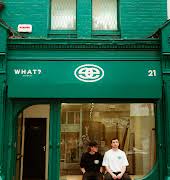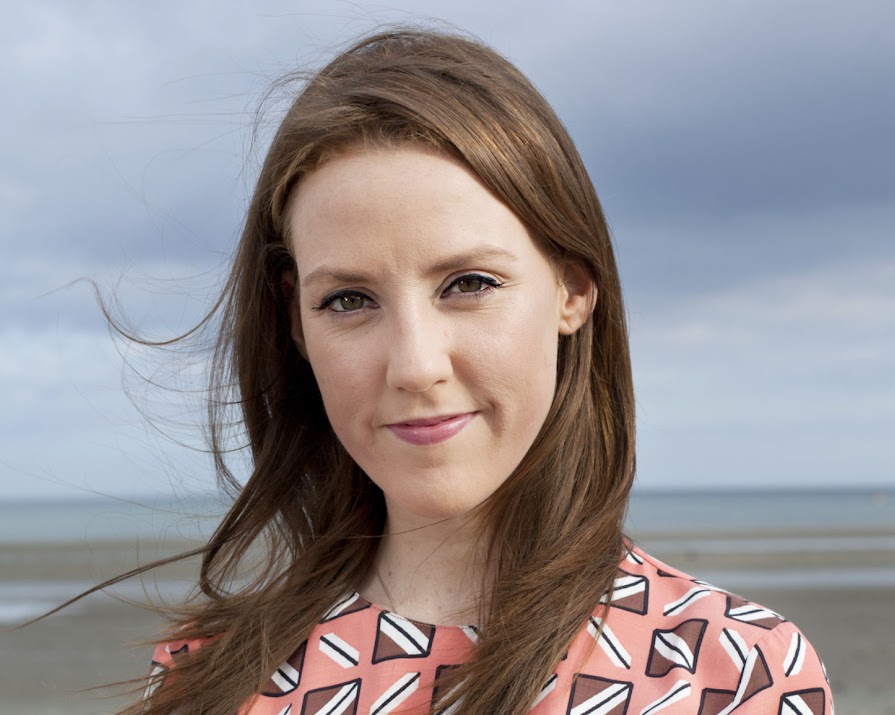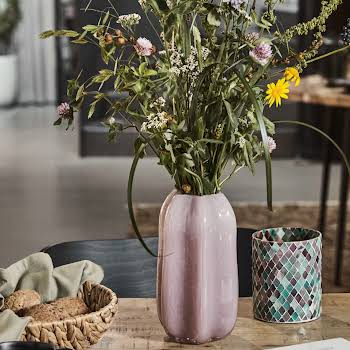
Louise O’Neill: ‘My duty far outweighs my discomfort at being called a stupid bitch on the internet’
By Erin Lindsay
14th Mar 2018
14th Mar 2018
“Is Sarah a nasty woman? Maybe. In 2018, do I think we need more representations of nasty women in fiction and real life? Absolutely.”
Louise O’Neill is protective of her protagonist. When I meet her to talk about her new book Almost Love, her first offering to adult audiences, I can tell how much the book means to her. It follows Sarah, a struggling artist in her twenties who’s juggling a less-than-desirable job; a boyfriend that she just isn’t invested in; a father dragging her into the past and most of all, the gnawing memories of an ex-lover. With the success of Louise’s past books, Almost Love was fiercely anticipated and has been received well, with people even braving Storm Emma to grab a copy on its release date.
In the middle of just one of many crazy press days, I expect she’ll be sick to death of repeating answers about the book. She visibly cringes when I bring up a common one, the theme of unlikability in her main characters. In each of her novels, the main characters are not the angelic female protagonists that we’re used to seeing. More often they’re cruel, self-sabotaging, self-obsessed, irritating – the list goes on. It’s something that O’Neill is constantly asked about and the answer seems obvious:
“I want the character to be honest, I don’t really care if they’re likeable or not,” she says. “I’m always looking for emotional honesty in my work. I want to bring light to darkest parts of ourselves, the parts that we’re ashamed of and that we think that no one else experiences because those dark corners of our psyche are what makes us human. And of course, as an author its much more interesting to explore our complexities rather than being simple.”
“Personally, I have a real need to be liked. And that’s something I don’t like about myself”
But it goes deeper than that, to O’Neill’s personality and how she views self-esteem. She’s refreshingly honest about what this means to her. “Personally, I have a real need to be liked. And that’s something I don’t like about myself”, she laughs. “It was much more so when I was younger and I’ve really tried as I got older to not do that, to reassure myself that it doesn’t matter what other people think. Women are taught to be really nice and to put a lot of store into whether people like them and for me, it’s an opportunity in my work to interrogate that.”
It’s something that women everywhere know all too well, and we’re only just beginning to confront how this affects our relationships and our sexuality. In Almost Love, Sarah is obsessed with securing a man who finds her sexually attractive and believes that she loves him, but when he is vulnerable with her, she immediately retracts. This is an interesting turning point in the book; when Sarah begins to get what she thought she wanted from Matthew, vulnerability, honesty, the beginnings of an emotional relationship, her interest in him is gone. Louise explains
“I believe that the crux of the human condition is that we don’t think we’re good enough. And so when we find someone that reflects that back to us, there’s a feeling that they understand the truth of us. If we can prove ourselves worthy of them, we can prove that we’re worthy of that love.”
“Sarah is turned on by the way Matthew desires her youth and beauty, and so his pleasure is prioritised. I know how that feels”
O’Neill goes on to explain how Sarah and Matthew’s relationship is a mirror to how society views sex and relationships, and how we encourage different behaviours in each sex. “We encourage male sexuality with aggressiveness and female sexuality with passivity. This results in bad sex for women, women having to perform their sexuality rather than fully inhabit it. Sarah is turned on by the way Matthew desires her youth and beauty, and so his pleasure is prioritised. I know how that feels and a lot of women do too”.
These ideas feel timely with the emergence of #MeToo and #TimesUp, and conversations that are increasingly turning towards sexual politics and gender roles in relationships. It almost seems as if Almost Love arrived at the exact right time. In fact, every one of O’Neill’s books feels like this. Only Ever Yours came at a point where body image and traditional beauty standards were on everyone’s lips, and Asking for It came at the peak of the international conversation around consent. I wonder if O’Neill has a sixth sense about how issues will progress with time and if that’s what she aims to pinpoint.
“I’m not a deliberately provocative person,” she says. “But I like to challenge preconceived notions because I’ve felt the weight of them my entire life. I’m writing the books that I wanted to read when I was younger.”
“It’s so funny that I deliberately set out to not be political with this book but then I read it back and saw that it was about gender politics, class and privilege, art and who gets to make it, wealth and sex. I just can’t seem to stop myself!” she laughs.
This willingness to weigh in on these era-defining issues means that O’Neill is carving (willingly or unwillingly) a space for herself as a figurehead. Which of course opens her up to criticism.
“It’s ridiculous that I am in a job where I’m constantly rejected and criticised when I really care what people think of me and don’t like rejection”, she laughs. But her views on speaking out for what she believes in are crystal clear. “When it comes down to it, I think that issues like feminism, abortion, gender politics are too important. My duty to talk about them far outweighs my discomfort at being called a stupid bitch on the internet.”
O’Neill’s business shows no sign of slowing as Almost Love is only the first of two books that she’s releasing this year. The second, The Surface Breaks, a feminist retelling of the Little Mermaid, is due in May. Was rewriting a Disney movie something that she always wanted to do?
“I was 4 when ‘The Little Mermaid’ came out and it was the thing for every girl my age.I was half child, half sea creature growing up and I felt such an affinity for her. Watching that movie as I got older and seeing the longing she had for more for her life, it spoke to me as a girl in a small town with big ambitions.”
“As I got older and read the original story, I understood how problematic it was. Projecting romantic ideals onto this man she doesn’t know, she silences herself and mutilates her body so that he’ll find her attractive. As my feminism became stronger, I wanted to reclaim her for a younger audience and show her as a more interesting character.”
Following this will be the stage adaptation of Asking For It, premiering at the Every Man Theatre in Cork before a run at the Abbey Theatre later in the year. It’s something that O’Neill is excited about, as her family and fellow Corkonians will be in attendance. But what comes next? What would be her dream project? “I would love to write a memoir”, she says. “Not about my entire life, just around certain areas, certain times of my life that were difficult”.
“I was a complete asshole until I was 26”
O’Neill is referencing the times in her life when she dealt with her eating disorder, which she struggled with into her twenties. When we talk about this, the refreshingly honest and self-aware perspective that she has comes to the forefront again, and it’s easy to see how her experiences have culminated in her work, especially in Almost Love. “I was a complete asshole until I was 26,” she says. “I don’t relate to Sarah in a lot of ways but one way I do relate to her was that I was very unhappy in my early 20s and very unwell. I behaved in ways that I feel uncomfortable with and don’t reflect the person that I am now, and I think it came from being wounded and not having the emotional reserves to deal with that.”
“Because I’m able to have that level of empathy for my younger self, I find it easier to have that empathy for Sarah. I even have empathy for Matthew. There are no villains in the book, there are just complicated, damaged people who are inflicting that damage on others.”
But is there a light at the end of the tunnel? “Matthew is more of a lost cause, older and stuck in his ways, but there’s hope for Sarah, definitely. When I look at myself at that age, I want to give her a hug and tell her that she’ll be okay”.
Image courtesy of Clare Keogh























